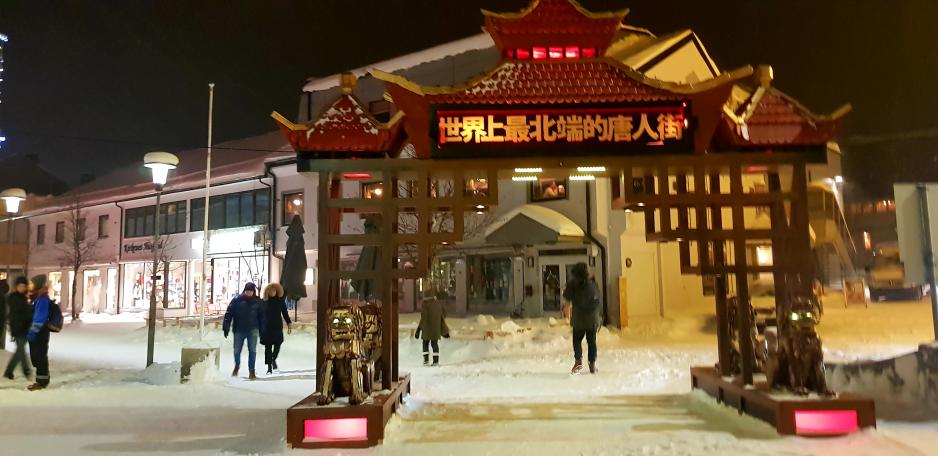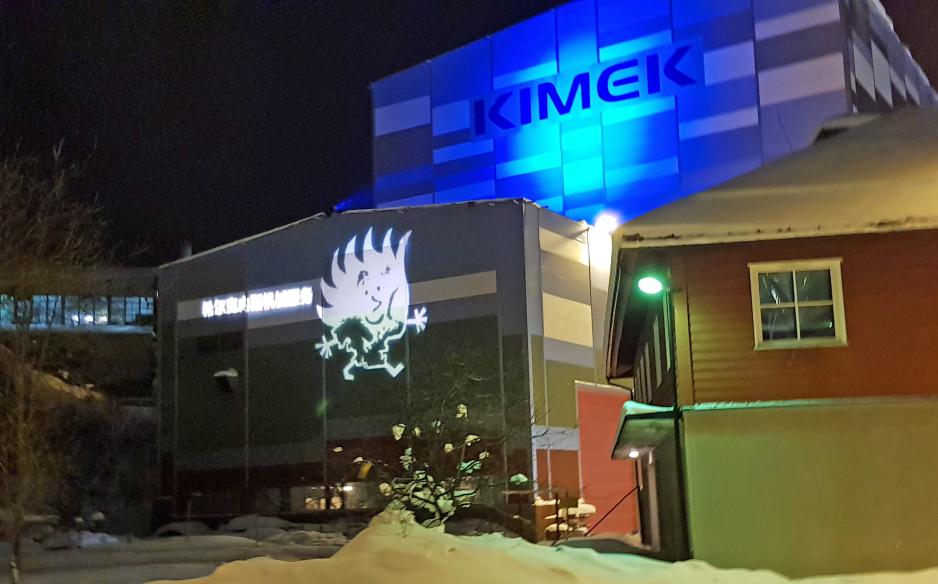Editorial: The Chinese Dilemma

Barents Spektakel turned the world upside down for a week. Kirkenes was turned into a Norwegian Chinatown. (Photo: Arne O. Holm)
I just spent some days in China. Or rather; China came to me – in the form of the Barents Spektakel cultural festival in Kirkenes. For one week, the town on the border to Russia was turned into a Norwegian Chinatown. That is both impressive and a cause for further reflection.
I myself participated in debates and led debates about Norway’s relationship to China. That is a part of the concept of the newspaper you are now reading, High North News. To put it simply; it is all about gathering knowledge and disseminating knowledge about what goes on in the Arctic and the High North, on all suitable platforms and fora.
The national absence
Even such a big event like Barents Spektakel in Kirkenes reaches only a limited audience, even when the organisers paint with a big brush using art, culture and debates to tell a story and invite discussion about our relationship to one of the world’s two superpowers, China.
It is remarkable how absent national media is when important debates are not fitted into a TV studio in Oslo. Especially now, when the discussion about our relationship to China is at the top of everone’s agenda.
On Monday 4 February, the Police Security Services (PST) in Norway presented its annual threat assessment. PST General Manager Benedicte Bjørnland met the nation with serious eyes when telling us that we have every reason to fear both China and Russia.
A week later, the military intelligence services presented its annual threat assessment. Again that same serious look, this time from Lieutenant General Morten Haga Lunde. The message was the same as that of PST – China and Russia constitute the greatest threat.
Chinese threat
Two days later, the Barents Spektakel festival commenced in Kirkenes with a program almost tailor-made to discuss the challenges pointed out by PST and the military intelligence services. A whole week focusing on Norway’s and Russia’s relationship to China. A week of groundbreaking knowledge dissemination through texts, music, exhibitions, debates, peformance and probably more that I did not find time to cover.
Not groundbreaking enough to become part of the national debate
Yet it is not groundbreaking enough to become part of the national debate.
Which, by the way, quickly took a turn down a rather limited track: Should Chinese-owned Huawei be allowed to participate in the construction of digital infrastructure in Norway, as has been the case until now? An important debate, by all means, but a simplification of the challenges pointed out by PST and the military intelligence services.
Because our relationship to China covers so much more than just an international telecom giant.

Chinese signs shone all over Kirkenes, like here at the Kimek shipyard. (Photo: Arne O. Holm)
Chasing agreements
Not that long ago, more than 300 business leaders from Norway went to China together with the King to secure deals with Chinese partners. The delegation included the then-manager of Innovation Norway, who said the following about the significance of trade with China: Good cooperation with China is decisive for Norwegian economic growth.
In the High North, many of these agreements are in place already – including in Northern Norway.
We find them at universities and research organisations, such as e.g. NIBIO, the Norwegian Institute of Biological Research, based in Pasvik, Finnmark County. Together with China, NIBIO has invested some NOK 70 million (€ 7 mill.) in a joint research project. Smelters in the Salten region and Mo i Rana (Nordland County) have Chinese owners, and China has its own research station in Ny Ålesund, Svalbard. High-tech fish industry companies are fiercely fighting their way into the Chinese market.
To mention but a few.
Russia + China = True?
In sum, we import goods for NOK 80 billion from China while exporting products for some NOK 26 billion. And there will be a whole lot more, if the government and business leaders who went to China have their way.
The obvious question that does not really have an answer is this: How does that align with our own intelligence services’ warnings against that very same country?
What happens to the Western model of democracy?
There are plenty of dilemmas.
What happens when Russia, our neighbor, and China now appear to join forces in a united front against our prime ally, the USA? It does not really matter whether this is a forced marriage provoked by Donald Trump or the beginning of a close friendship.
Western democracy
What happens to the western model of democracy and Europe when countries without genuine freedom of speech and human rights get an increasingly more prominent place, in particular in the Arctic?
The North keeps asking the questions that are still looking for good answers. Dilemmas arise because the world is a complex place. We want to trade with China because it allows us economic growth, however, we are encouraged not to do so due to security concerns.
This editorial comment originally appeared in Norwegian and has been translated by HNN's Elisabeth Bergquist.

